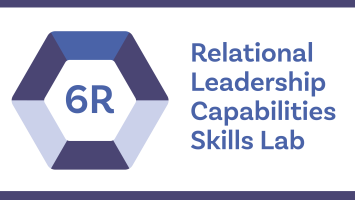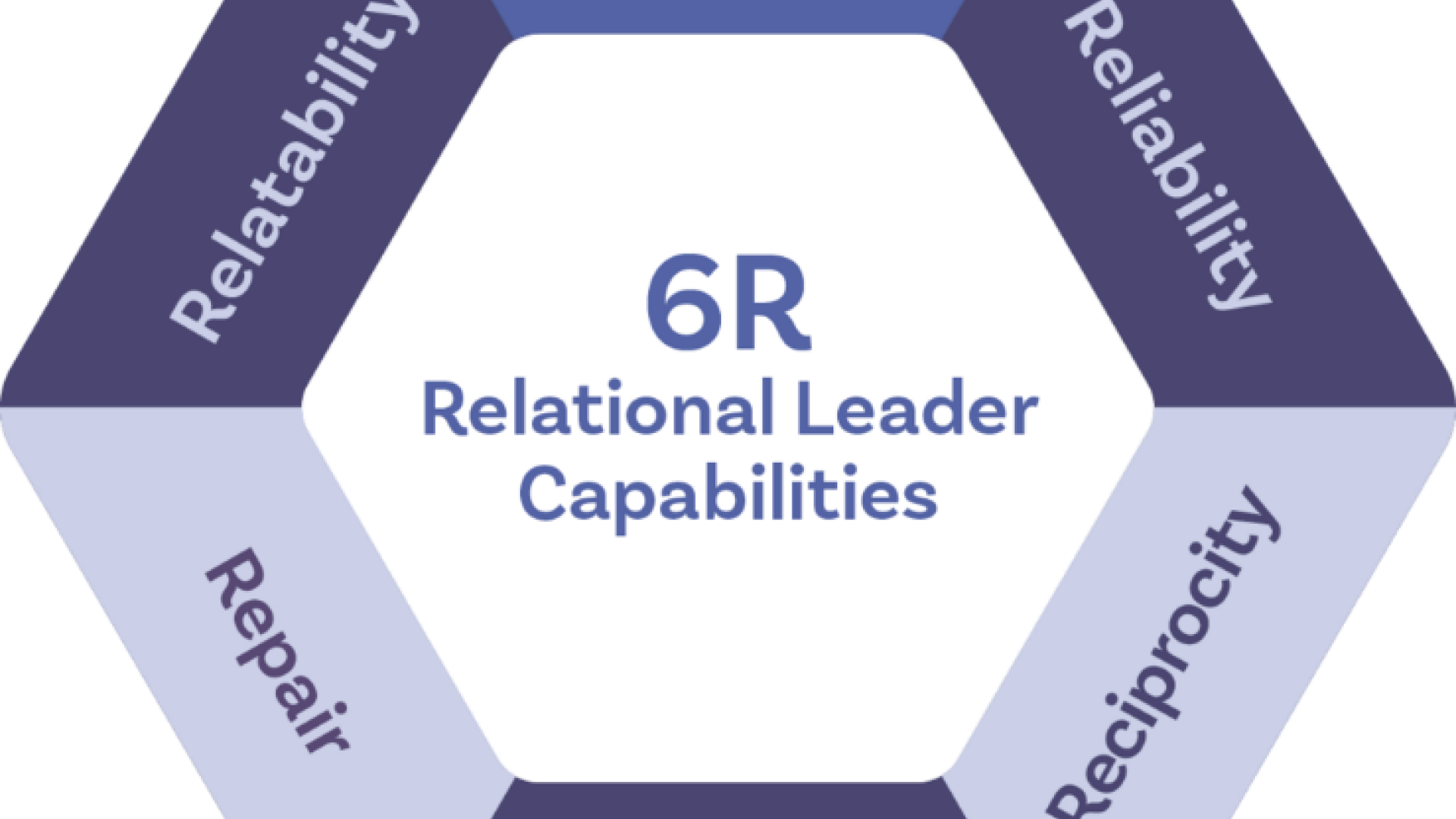Relational leadership skills focus on the human side of connection and compassion, as the foundation to driving psychological safety, pro-integrity and organisational performance.
Conflict resolution
Latest news
Upcoming events

This course is delivered on 17/02/2026, by face-to-face consisting of one 4-hour session.

This course is delivered on 26/02/2026, by face-to-face consisting of one 4-hour session.

This course is delivered from 06/03/2026 to 09/07/2026, by face-to-face/face-to-screen (Hybrid), consisting of seven sessions of varying lengths.

This course is delivered on 12/03/2026, by face-to-face consisting of one 4-hour session.

This course is delivered from 17/03/2026 to 18/03/2026, by face-to-screen consisting of two 8-hour sessions.

This course is delivered on 17/03/2026, by face-to-screen consisting of one 7-hour session.

This course is delivered on 22/04/2026, by face-to-face consisting of one 4-hour session.

This course is delivered from 05/05/2026 to 29/07/2026, by face-to-face/face-to-screen (Hybrid), consisting of eight sessions of varying lengths.

This course is delivered on 19/05/2026, by face-to-face consisting of one 4-hour session.

This course is delivered on 03/06/2026, by face-to-face consisting of one 8-hour session.

This course is delivered on 11/06/2026, by face-to-face consisting of one 4-hour session.

This course is delivered from 07/07/2026 to 09/10/2026, by face-to-face/face-to-screen (Hybrid), consisting of eight sessions of varying lengths.

This course is delivered from 04/08/2026 to 06/11/2026, by face-to-face/face-to-screen (Hybrid), consisting of eight sessions of varying lengths.
Courses

Leaders who have the skills to foster and maintain meaningful relationships that inspire, empower and support others drive organisational success, as well as psychological and psychosocial safety within their teams.

This course teaches the skills to respond to workplace and organisational conflict. This practical skills-based program explores the causes of workplace conflict, ways to identify and address the early signs, tools to reduce anxiety and talk skilfully about difficult issues and behaviours in a professional and resilient manner.

This program teaches the skills to respond to workplace and organisational conflict as a manager, including the tools to coach and support others.

Explore aspects of influence and the psychology of persuasion. Understand how verbal and physical language affects interpersonal exchanges, including negotiations, meetings and briefings.

The Multicultural Organisation – Staff Awareness, Innovation and Capability (MOSAIC) digital learning magazine aims to enhance multicultural awareness in the APS.

The program strengthens the leadership capability of experienced senior executives to effectively deliver their key accountabilities.
Resources
Tools, guidance and resources to support staff in understanding, valuing and practicing good record keeping - ensuring continued delivery of trusted and transparent services.
Comcare is the national authority for work health and safety, and workers’ compensation. Their purpose is to promote and enable safe and healthy work.
Guides and resources to support individuals and organisations to better understand, prevent and address workplace sexual harassment, including positive duty.
Any APS or Parliamentary Service employee (ongoing, non-ongoing or casual) may apply for an independent review of an action or decision that affects their employment. (subject to certain exceptions).
The event was focused on pathways to more culturally informed engagement and partnership with First Nations communities and was led by Sam Jeffries with Dr Rachel Bacon.
Psychosocial hazards are aspects of work which have the potential to cause psychological or physical harm. The Comcare website has information and resources about identifying and managing these hazards.
This Worker Information Sheet provides information and guidance to workers in Commonwealth regulated workplaces about workplace bullying and what assistance Comcare can provide in these cases.
The Department of Defence hosts a quarterly community of practice (CoP) for APS Public Interest Disclosure practitioners.
Comcare provides a range of learning resources to help identify, prevent and respond to bullying and harassment.
Comcare’s evidence-based Good Work Design resources can better support health, wellbeing, work participation and productivity, while creating psychologically safe teams.
In this video, APS staff from around the country answer the question: ‘What does working together in the APS mean to you?’
Inspire and support a continuous learning culture with these Continuous Learning conversation prompts.
The Australian Public Service Commission hosts quarterly Network meetings for APS staff working in Integrity and Ethics roles.
A Psychosocial safety learning bite to support Team Leaders foster and contribute to psychological safety in the workplace.
A Psychosocial safety learning bite to support staff understand and contribute to psychological safety in the workplace.
The Merit Protection Commission hosts a quarterly community of practice (CoP) for APS review of actions and misconduct practitioners.
Martin Seligman presents the ‘PERMA’ model which steps through five elements essential to human wellbeing and flourishing: positive emotions, engagement, relationships, meaning and achievement.
The APS Reform Office has created a website with resources and links on how public service agencies are implementing APS Reform initiatives.
Trauma-informed guidance to accompany the release of 'Set the Standard: Report on the Independent Review into Commonwealth Parliamentary Workplaces'. The Resource outlines trauma such as bullying, sexual harassment and sexual assault and its impacts.
Workplace bullying is repeated and unreasonable behaviour directed towards an employee or group of employees, that creates a risk to health and safety. The Headsup website has information and practical guides.
Professor Robert Cialdini developed what he describes as ‘six universal principles of persuasion’. These fundamental human states allow leaders to increase the likelihood of influencing others.
Lisa Lahey (2017) explores how leaders can transcend habitual patterns, and considers how to navigate change and complexity.
Caroline Webb (2018) discusses the ‘discover-defend axis’ which is a model showing that the brain has two ‘modes’ which shape the way humans interact.
Brene Brown informs leaders how they can give constructive and honest feedback from a place of engagement, rather than judgment. She calls it ‘Sitting on the same side of the table,’ as someone.
Gabriele Oettingen presents the ‘WOOP’ model which is a practical, accessible, evidence based mental strategy that people can use to find and fulfil their wishes and change their habits.




